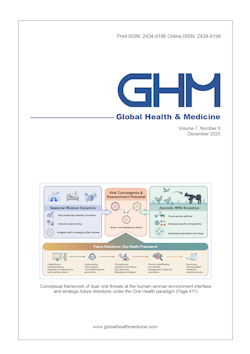Global Health & Medicine 2025;7(3):185-188.
Asymmetric amplification: New lens for China's e-cigarette policies on youth influence
Wang Q, Qin Y, Song Y, Lv Y, Jiang Y, Yang L
China introduced universal e-cigarette regulations in 2018 to curb youth vaping, including flavor bans, online sales prohibitions, and taxation. While these policies are not explicitly age-targeted, their design disproportionately impacts adolescents due to young people's price sensitivity, preference for flavored products, and reliance on online purchases. This study examines how such regulations achieve outcomes akin to age-based bans without directly restricting moral agency or risking discrimination. We believe that universal measures like flavor restrictions and taxes amplify their impact on youth through behavioral and economic mechanisms — termed "asymmetric amplification". Results suggest these policies effectively reduce youth vaping while sidestepping ethical controversies tied to generational bans. However, challenges like informal sales channels and adolescent stigma require complementary enforcement. This paper highlights a pragmatic and ethically sound approach to youth tobacco control and offers new insights into policy design for public health practitioners and regulators worldwide.
DOI: 10.35772/ghm.2025.01049







